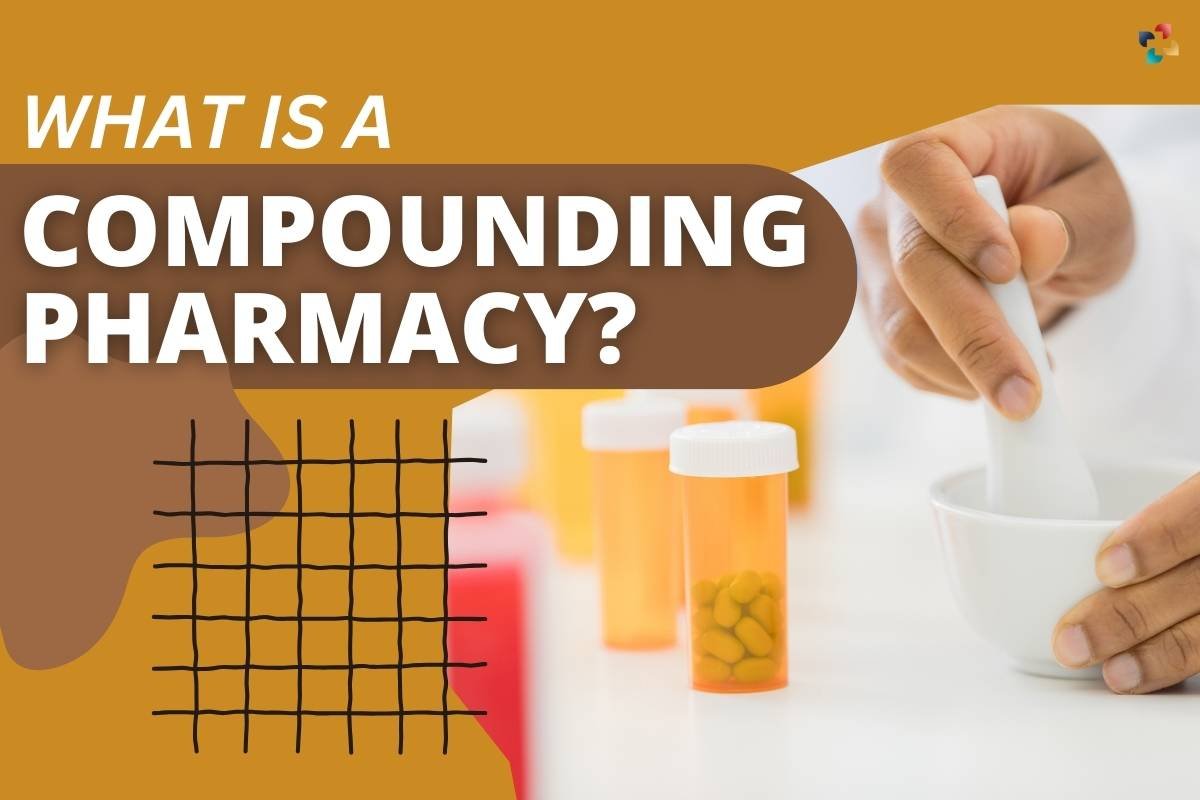Compounding pharmacies are special and important players in the pharmacy industry since they provide customized drug regimens based on the requirements of specific patients. This article explores the complex world of compounding pharmacies, including its regulatory framework, importance, and critical role in healthcare.
Unraveling the Essence of a Compounding Pharmacy
1. Defining Compounding Pharmacy
A compounding pharmacy is a specialized facility that creates customized medications by combining, mixing, or altering pharmaceutical ingredients to meet the specific requirements of an individual patient. Unlike traditional pharmacies that dispense mass-produced medications, compounding pharmacies focus on the art and science of creating personalized, patient-specific formulations.
Compounding pharmacies play a crucial role in healthcare by addressing the unique challenges that patients may encounter with commercially available medications. Patients with allergies, sensitivities, or specific dietary preferences often find relief through the services of a compounding pharmacy.
These pharmacies extend their expertise to formulate medications in alternative strengths, dosage forms, or combinations, ensuring that patients receive treatments that align seamlessly with their medical needs. As a bridge between science and patient care, compounding pharmacies exemplify a personalized approach to medicine, emphasizing the importance of tailoring treatments to the individual for optimal health outcomes.
2. Customization Beyond Commercial Medications
The need for compounding arises when commercially available medications do not suit a patient’s unique circumstances. This could be due to allergies to certain ingredients, dosage preferences, or the unavailability of specific formulations. Compounding pharmacists work closely with healthcare providers and patients to create medications in alternative forms or strengths that better align with individual health needs.
The Role of a Compounding Pharmacy in Healthcare

3. Addressing Medication Challenges
Compounding pharmacies play a pivotal role in addressing medication challenges that standard formulations may present. For example, patients who have difficulty swallowing pills may benefit from custom-compounded medications in liquid, transdermal, or sublingual forms. This customization enhances medication adherence and effectiveness.
4. Meeting Unique Patient Requirements
Certain medical conditions may require medications with unique formulations, concentrations, or combinations. Compounding pharmacies step in to meet these specific patient requirements, ensuring that individuals receive medications tailored to their precise needs. This is particularly significant for patients with allergies, sensitivities, or specific dietary restrictions.
Regulatory Framework for Compounding Pharmacies
5. FDA Oversight and Regulation
Compounding pharmacies operate within a regulatory framework established by the Food and Drug Administration (FDA). While compounding is a traditional pharmacy practice, it has garnered increased attention in recent years. The FDA oversees compounding pharmacies to ensure the safety, efficacy, and quality of compounded medications.
The heightened scrutiny from the Food and Drug Administration (FDA) underscores the significance of ensuring the safety and quality of compounded medications. In response to incidents that raised concerns about the integrity of compounded drugs, the FDA has intensified its oversight to uphold stringent standards. This regulatory framework aims to strike a delicate balance between granting patients access to personalized medications and safeguarding against potential risks.
The FDA’s involvement emphasizes its commitment to protecting public health, reinforcing the importance of compliance with regulatory guidelines within the compounding pharmacy sector. Continuous collaboration between compounding pharmacies and regulatory authorities ensures ongoing advancements in safety protocols and quality assurance measures.
6. Distinction Between Traditional and Outsourcing Facilities
Compounding pharmacies are classified into two main categories: traditional compounding pharmacies and outsourcing facilities. Traditional compounding pharmacies primarily serve individual patients based on specific prescriptions, while outsourcing facilities engage in larger-scale compounding for healthcare providers, clinics, and hospitals.
The Compounding Process: Art Meets Science

7. Consultation and Prescription Assessment
The compounding process begins with a consultation between the patient, healthcare provider, and compounding pharmacist. During this consultation, specific medication needs, dosage forms, and any allergens or sensitivities are discussed. The compounding pharmacist collaborates with the healthcare provider to determine the most suitable formulation.
8. Ingredient Selection and Compounding
Compounding pharmacists carefully select pharmaceutical-grade ingredients and compounds based on the prescription and patient requirements. The compounding process involves precise measurements, mixing, and compounding to create the final medication. Quality control measures are implemented to ensure accuracy and consistency.
9. Quality Assurance and Testing
Quality assurance is a critical aspect of the compounding process. Compounded medications undergo rigorous testing to verify their potency, purity, and stability. This commitment to quality ensures that patients receive medications that meet stringent standards and adhere to prescribed specifications.
Challenges and Considerations in Compounding
10. Regulatory Compliance Challenges
While compounding is a valuable practice, it is not without challenges. Regulatory compliance, especially in the wake of incidents that raised concerns about the safety of compounded medications, remains a focal point. Striking a balance between patient access to tailored medications and ensuring regulatory compliance is an ongoing challenge for compounding pharmacies.
11. Educating Healthcare Providers and Patients
Effective communication and education are essential in promoting the benefits of compounding pharmacy services. Healthcare providers need to be informed about the capabilities of compounding pharmacies, and patients must understand the potential advantages and considerations associated with personalized medication formulations.
The Future of Compounding Pharmacies
12. Advancements in Compounding Technology

The future of compounding pharmacies holds promise with advancements in technology. Automated compounding systems and precision equipment enhance the accuracy and efficiency of the compounding process, reducing the likelihood of errors and ensuring consistently high-quality formulations.
13. Collaboration with Healthcare Providers
Increased collaboration between compounding pharmacies and healthcare providers is anticipated. This collaboration fosters a more integrated approach to patient care, where healthcare providers view compounding pharmacies as valuable partners in addressing individual patient needs.
Conclusion
Compounding pharmacies are the cornerstones of individualized and patient-centered care in the ever-changing world of contemporary healthcare. Individuals obtain pharmaceuticals that are specifically suited to their health profiles thanks to the careful balancing act between the art and science of compounding. Compounding pharmacies continue to be an important part of the story of personalized medicine, with their involvement in meeting patients’ unique and varied demands growing as laws and technology change.








